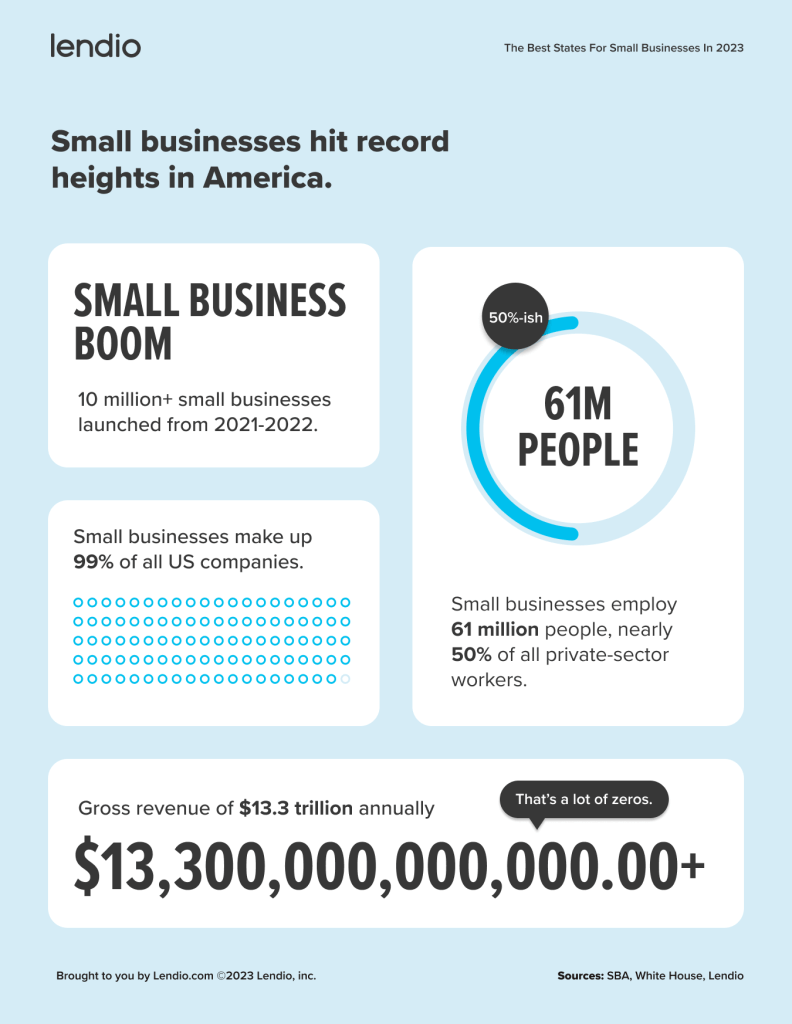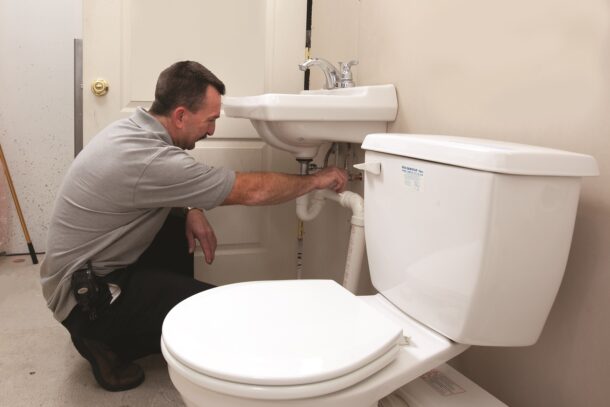Are you happy in your current industry? You’re not alone if you don’t feel content with it. You want to be able to give your job your all but if you are finding yourself needing, craving something different, then you might consider starting a trade. It doesn’t matter where you are in your career right Read more
business plan

Are you happy in your current industry? You’re not alone if you don’t feel content with it. You want to be able to give your job your all but if you are finding yourself needing, craving something different, then you might consider starting a trade. It doesn’t matter where you are in your career right now, because learning a trade and starting your own business can and will make a big difference to your future.
Finding the right information about starting your own business often starts with running some research and statistics on small business success. There is a lot to learn about going it alone but that doesn’t have to be too difficult. The Lendio small business statistics list is always better to understand when you have a goal you want to aim for, and the infographic below can talk you through some of the things that you need to know!

Infographic Design By Lendio

The construction industry is dynamic, fast-paced, and challenging. You’ll need to stay on your game to succeed as a business owner. Construction contracting generally involves working with clients to complete construction projects and sometimes as a sub-contractor helping to fill a smaller niche within a larger job. As such, you may have limited control over Read more
The construction industry is dynamic, fast-paced, and challenging. You’ll need to stay on your game to succeed as a business owner. Construction contracting generally involves working with clients to complete construction projects and sometimes as a sub-contractor helping to fill a smaller niche within a larger job.
As such, you may have limited control over the final scope of the project and how much money you stand to make. Without the right coverage in place, this could leave your business vulnerable. Contracting is a risky business, which is why contractors need protection.

1. Have the Right Insurance in Place
Contractors need to get the right insurance coverage in place before they start working on a project. Without insurance, your business will pay for damages and injuries during work. Make sure you have general liability insurance that covers your business’s operations.
If you are involved in building a new home, you’ll want construction insurance. Homeowners’ insurance will not cover any contractors working on your property. If you own heavy equipment, get the proper insurance for it.
You should also have workers’ compensation insurance and surety bond insurance. This coverage ensures ethical business practices and compliance with building codes. You’ll want to find an insurance company that specializes in contractor insurance.
2. Stay Current on Training and Education
You should seek out training and education opportunities that will help you to improve your business. Don’t just focus on traditional education, but also on staying up to date on the latest technology and best practices.
You can do this by joining industry trade associations. These associations will help you stay connected with other contractors and the latest information; you should also consider taking classes and attending workshops. There are many training and education opportunities available to help build your skills.
Check with your state’s licensing board to see if they offer any training programs. Training and education opportunities can help you improve your time management skills, paperwork processes, and client communication skills.
3. Run a Background Check on Potential Employees
Workers play a critical role in the success of your contracting business. You must maintain a safe work environment; it starts with hiring the best possible employees. You can screen potential employees by conducting a background check.
It will help you gauge an applicant’s character and potential risk to your business. It can also help you avoid hiring somebody who has questionable work history. Make sure to conduct thorough and accurate background checks.
Background check services are available to help you with this process. Also, talk to your insurance company about any coverage they offer for hiring employees. Some insurance companies will provide coverage against negligent hiring.
4. Maintain a Strong Payment System
Contractors rely on getting paid for their work. A strong payment system is essential to keeping cash flowing smoothly. You should have a payment system in place before you start working on a project. Some contractors prefer a payment system that is a percentage of the project’s cost.
Other contractors prefer a fixed-price system. Before you choose a payment method, you need to consider how much experience and expertise you have working on that particular type of project. You should work with your client to establish a payment plan.
You should also create a payment plan that is realistic for your business. Take into account how much work is left to be completed, any costs involved in the project, your employees’ time, and other expenses.
5. Utilize Technology to Stay Protected
Protecting your data, equipment and employees goes beyond a strong payment system. Contractors can use technology to stay protected. Make sure to have a data backup system that protects your information during a disaster.
Modern contracting involves technology, so make sure all your hardware and software are up to date. It includes computers, software, cell phones, and other devices used in your business.
It will help decrease frustration and provide a better experience for your clients. Also, using technology in construction has made it much easier for contractors to stay in contact with their clients.
Conclusion
Much has changed in the construction industry over the years. Technology, insurance, and training are just a few examples. Fortunately, all of these changes have the same underlying theme; better protection for all parties involved. As a contractor, it is important to stay protected and keep up-to-date on industry trends to ensure the longevity of your business.

Transitioning from working for an employer to starting your own business is a big decision. It should be made with seriousness, as there are a lot of factors to consider. But if you’re passionate about plumbing and ready to be your own boss, then starting your own plumbing business may be the right move for Read more
Transitioning from working for an employer to starting your own business is a big decision. It should be made with seriousness, as there are a lot of factors to consider. But if you’re passionate about plumbing and ready to be your own boss, then starting your own plumbing business may be the right move for you. Here’s what you need to know to transition from employee to entrepreneur.

Do Your Market Research
The first step in starting any business is to do your market research. This is especially important for a plumbing business, as you need to ensure enough demand for your services in your area. Talk to other plumbers in your area to see how busy they are and what areas of town they service. You can also talk to potential customers to see if they would be interested in using your services. This market research will give you a good idea of whether or not starting your own plumbing business is a viable option.
Plan Your Finances
Financial planning is crucial if you start your own business. First, you’ll need to have enough money to cover your living expenses for at least six months and the start-up costs for your business. These start-up costs can include anything from licenses and permits to office space and marketing materials. Once you clearly understand your financial situation, you can begin to create a business plan.
Choose Your Business Structure
There are several different business structures you can choose from when starting your own plumbing business, including sole proprietorship, partnership, limited liability company (LLC), and corporation. Each option has its pros and cons, so it’s essential to research and select the structure that makes the most sense for your unique business.
Get Licensed and Insured
To operate legally, all businesses must have the proper licenses and insurance. Plumbing business licenses and insurance requirements vary from state to state, so check with your local government offices for more information. Once you have the necessary permits and insurance, you’ll be ready to start marketing your business!
Offer A Unique Service
One of the best ways to make your plumbing business stand out from the competition is to offer a unique service they don’t have. This could be anything from drain cleaning to septic tank maintenance. By providing a service that other plumbers in your area don’t, you’ll be able to attract more customers and grow your business more quickly.
Market Your Business
Several ways to market a plumbing business include online marketing, print advertising, direct mail campaigns, and more. When developing your marketing strategy, focus on targeting your ideal customer base. For example, if you want to attract residential customers, then online ads targeting homeowners in your area would be an excellent place to start.
Transitioning from working for someone else to starting your own plumbing business is a big decision—but it can also be gratifying. By following these steps and doing your research ahead of time, you’ll be well on your way to making your entrepreneurial dreams a reality!

Are you thinking of setting up a plumbing business? You have come to the right place. If you want to create a successful plumbing business, you need to build it on solid foundations, more than just hiring great employees. Read on to find out how to establish a plumbing business and thrive. Business Website In Read more
Are you thinking of setting up a plumbing business? You have come to the right place. If you want to create a successful plumbing business, you need to build it on solid foundations, more than just hiring great employees. Read on to find out how to establish a plumbing business and thrive.

Business Website
In the past, the first thing you needed for a plumbing business was a business card. A business card has your telephone number and some of your services on it. Nowadays, the first thing you need is a website that can be found on the internet business database. But it’s easy to set up.
Starting a website these days is fairly straightforward with a website builder. The traditional route is to use WordPress or something similar, but other websites like UENI are better for small plumbing businesses. When you have a website, apply to Google My Business for a listing.
Training and Experience
If you want to operate a professional plumbing business, you need to know your trade. On average, it takes four years of apprenticeship to learn the business and gain enough hands-on experience to strike out on your own. Most plumber work with an agency for a number of years.
The best advice is not to start too early on a self-employed basis. Although you have completed an apprenticeship, there is still a lot to learn about the industry, customer services, and tricks of the trade. Make sure you are in a reliable position to start your self-employed plumbing career.
Plumbing Tools
Along with a website, training and experience, and a lot of self-starter motivation, you will also need a range of plumbing tools. Hopefully, you have acquired a personal collection of plumbing tools over the years, but this might not be enough for a business if you have some employees.
Standard plumbing equipment you need for business includes pipe cutters, a soldering torch, pliers, a pressure test kit, and a pipe bender. Additionally, you might require drum weighing scales which are industrial-sized scales used to verify the capacity and resolution of materials.
Authority Licenses
There’s no chance of starting a plumbing business in your area without the proper authority licenses; doing so can lead to hefty fines as well as legal and insurance issues. Make sure you have the proper documents so you can legally practice your trade in the local area or state.
Authority licenses have to be considered one of the foundations of operating a successful plumbing business; not only does the correct accreditation make your business legal and insurable, but it also inspires confidence in your customers. They want a plumber with credentials.
Growth Strategy
Now that you have the foundations of your business, it’s time to find customers and grow. Growing a plumbing business is a combination of marketing efforts and word-of-mouth. Make sure you carry out work professionally and try to get positive reviews to use on the website. If you’re tech-savvy, you can also set up an aftercare review and build up online social proof.

A small plumbing business in the local area is an excellent livelihood. Not only is it a lucrative business – people always require plumbing services – but you can take on apprentices and grow your brand into an established player. Use the tips in this article to start out in the right direction. Understand the Read more
A small plumbing business in the local area is an excellent livelihood. Not only is it a lucrative business – people always require plumbing services – but you can take on apprentices and grow your brand into an established player. Use the tips in this article to start out in the right direction.
Understand the Niche
Plumbing services are wide-ranging, but the majority of plumbing companies offer uniform services, things such as pipe repair and drain cleaning. If you want to operate a successful plumbing business, you need to offer these basic services, but you also need more diversity.
Understanding your niche means knowing the strengths and weaknesses of the competition and taking advantage of gaps in their services. Look for ways you can offer customized services to set you apart from the competition, but don’t forget about your bread and butter services, either.
Training and Experience
If you are thinking of starting a plumbing business, chances are you have some training and experience already, perhaps you have a four-year apprenticeship under your belt, and it’s time to start your own brand. If you don’t have this, you need to start your training and experience.
Plumbing is a complex profession that requires industry knowledge and years of experience to offer high-quality services. For this reason, plumbers enjoy a lucrative livelihood, but it’s built on years of training. Even after you start a business, it’s still sensible to learn and develop skills.

Make it Legal
It’s not possible to start a plumbing business without the correct documents for your state. Most states require you to have a plumbing license, a contractor’s license, and a plumbing permit, but it’s worth checking the legal requirements for particular regions. Make it legal and avoid issues.
Once your plumbing business has the correct documents, you can start trading, but without them, you will be operating illegally and might incur fines or run into other legal issues. Plumbing is a professional service, not a freelance one, so ensure you have the papers to practice legally.
Business Plan
A business plan is a document that contains the current finances of your business and future projections if you need a butler building. Many newer plumbing businesses mistake the business plan for a rough document, but it’s much more and needed for loans and investments.
If you are unsure about where to start with a business plan, don’t worry. Although it is a key feature of a new business, there are services available to help you create one that works. No matter what direction you want for your business, a tailored business plan can be created.
Business Website
Don’t forget about a business website. A business website for a plumbing business is paramount because it gives you an online presence and hub for customers to find you and book your services. Not only that, a business website gives you the opportunity for digital marketing.
Digital marketing helps prospects and customers to find your business on search engines. Around 46% of all search queries are for local services, so make sure you have the right keywords for your business and high-quality on-site articles to turn prospects to conversions.

Business Promotion
Now that you have your business logo and website and you have the skills and experience to deliver a high-quality service to customers in the local area, it’s time to get your name out there. Business promotion is important, and it can be done using business cards and merchandise.
Business cards are a little outdated nowadays, but they are still useful for plumbing services. Whether you hand them to clients or put them in the local stores, a plumbing business card is a convenient resource. Also, consider building your brand in the local area with merchandise.
Effective Marketing
Some small businesses think that digital marketing is not for them, but the opposite is the case. In fact, the major search engines have created the perfect ecosystems for small businesses to connect with target customers and thrive. Make sure you are making the most of the services.
Effective marketing starts with your website and your keyword research. Since plumbing is a saturated industry, keywords might be hard to use for free, but if you tailor the keyword to your business or area, it makes them free and more targeted. Research content marketing for more information.
Final Thoughts
If you have the skills and experience in the plumbing business and you are ready to strike out on your own, there are plenty of resources available. If you want to be successful, you need a website with effective marketing, but you also need to make sure you have the legal document for your state in place. After that, it’s time to grow your name as a reliable service in the area.
